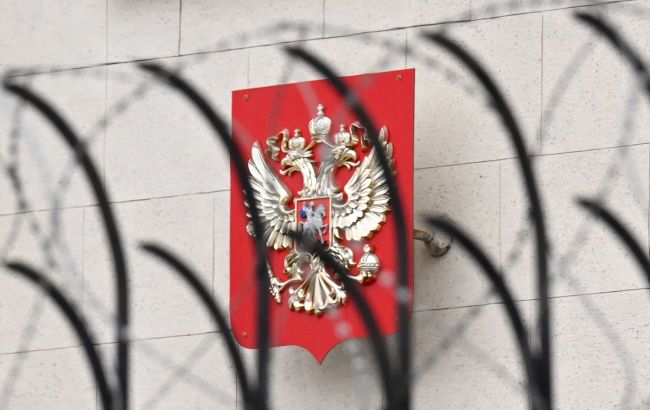Some EU countries insist on easing restrictions for Russia in bypassing sanctions - Bloomberg
 Some EU countries insist on easing restrictions for Russia in bypassing sanctions(Getty Images)
Some EU countries insist on easing restrictions for Russia in bypassing sanctions(Getty Images)
Some EU Countries Insist on Easing Restrictions on Ensuring Compliance with Sanctions Against Russia. This concerns easing pressure on the issue of circumventing sanctions by the Kremlin through third countries, according to Bloomberg.
According to sources familiar with the matter, a group of member states insists on softening the proposals of the European Union aimed at stopping the circumvention of sanctions against Russia through third countries.
"The bloc’s executive arm has proposed banning importers from reselling so-called high-priority items — like semiconductors used in weapons or needed to make them — to Russia or for use in Russia, and requiring a sum to be deposited in an escrow account to ensure compliance," writes the source.
According to the latest EU proposals on sanctions, as reported by Bloomberg, at least half of this amount will be transferred to a trust fund for Ukraine, and contracts will be terminated in case of violations. Exporters will also be required to inform national authorities of any breaches by third-country companies.
However, as journalists write, diplomatic representatives of the group of major EU member states expressed a number of concerns about these proposals this week, including doubts about their legality and the advisability of requesting such guarantees and provisions from importers.
According to sources, the countries also want to narrow the scope of potential clauses and the list of goods to which the proposed measures will apply. These member states are also concerned that contract requirements could put European companies at a competitive disadvantage.
"Other member states, including the Baltic nations, back the proposals," writes Bloomberg.
Sanctions evasion by Russia
The publication specifies that these debates are unfolding at a time when the EU is working to limit Moscow's ability to obtain key goods used for military purposes through third countries, such as Kazakhstan, Serbia, and Turkey.
Recent trade data obtained by Bloomberg shows that exports from these countries, which also include Armenia, Azerbaijan, and Uzbekistan, fell in the second half of this year but remain mostly higher than pre-war levels.
However, according to the data, over 80% of foreign purchases of priority goods in Russia now come from China and Hong Kong. Moscow has also managed to establish new routes through countries such as Thailand and Malaysia.
The United Arab Emirates, which was another major channel used by Russia, recently indicated that they would do more to control exports. However, the UAE does not provide timely trade data, complicating the assessment of progress.
For example, describing the scale of such circumvention, the sanctions coordinator at the US State Department, O'Brian, told Politico, "At the beginning of this year, Russia was able to re-import certain key categories of electronics at roughly pre-war levels."

